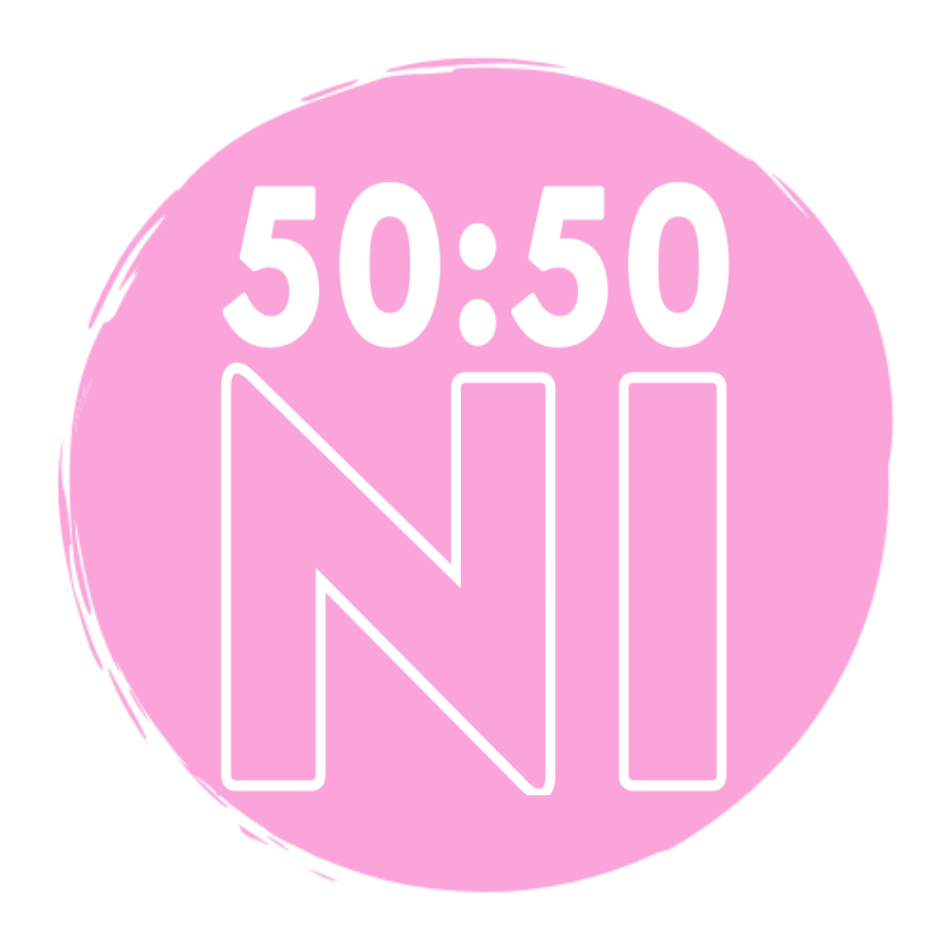This week 50:50 NI Meets Diana Armstrong. Diana is currently the chair of Fermanagh and Omagh District Council. Prior to her career as an elected representative, Diana worked in the European Union Institutions.
Have you always been interested in politics
Yes, I grew up surrounded by politics. My father was the minister for agriculture and leader of the UUP in Stormont. Growing up he was always doing constituency work and we would have politicians from other parties here and in the UK coming to our house.
That was the first flavour for me of what the duty was as an elected representative.
That’s really great, was that what inspired you to become a politician?
I think it was a process. After I went through my career and raised my family I feel that I had something to contribute and it was time for me. There definitely have to be more female voices in these institutions. So I thought I’d just dip my toe and see what would come of it.
Also, was co opted in 2016 after there became an official opposition and it became more akin to other areas like Scotland and Westminster and that influenced me quite a lot because it felt like an opportunity to move forward.
What did you do professionally before becoming a politician? Do you think it prepared you for your role as a politician?
I did languages and secretarial studies at college. I was going to become a teacher of french but I thought that I wanted to get out and see the world. I went to Brussels and worked for the European commission and I worked for the vice president. I saw how the institutions work and I saw another world of decision making and bureaucracy. It was great to travel and use my languages, and learn so much from other cultures.
I think it took away a lot of the fear of institutions. You can see that you can do it, you can go to a foreign country and learn how to integrate and how good support is so important because you are out of your comfort zone.
Is there a political issue that you are passionate about in particular?
Well, I do feel that there is a lot of inequality in society and I think that’s where women are more intuitive and more in touch. I feel quite strongly about rural communities. I live in Fermanagh and we have a lot of connectivity issues. Some farmers are having to do a lot of their work online and they may not have the connectivity or skills to do that. There is also a lot of rural isolation. I know of older people who do not see anyone for days except their home carers.
What has been, in your experience, the toughest part about being a woman in politics?
I think for me it has been that the job is relentless. You are always on call. For women, we still have more of a role to play in the home so that makes it hard. I am a daughter, a mother and a grandmother and it’s important to know when to step back a bit. Mental resilience is so important because if you are working under par you aren’t working well or at your best. As an elected figure you are visible and there is an expectation, and your job isn’t nine to five.
So what then do you think has been the best part about being a woman in politics?
I think it’s the satisfaction in the role and knowing that you have a voice and you can make a difference. I also think it is the opportunity to learn and grow as a person. In my case, I feel I have got to a place in my life now where it’s about me and I can push myself and my capabilities and explore what you can do for your communities. You get to be a voice and look for solutions to problems for your constituents.
There are a lot of barriers to women getting into politics, unfortunately. If you could make it easier for women to get into politics, what would you do?
I think a mentoring system would be great. Someone who has your back. In all of these roles, I think it’s so important to buddy up with someone. I think also, following your values. Choose what party or who you want to be affiliated with on your values and no one else’s.
Finally, if someone is interested in getting into politics what advice would you give them?
Do it for the right reason. Do it because you feel that you can develop your passion and issue that you care about. Don’t be afraid to ask questions and ask for help. Know that you have a voice and don’t be afraid to use it. It’s about what you say not how you say it.
If you are interested in getting into politics or are even just curious about how it all work get in touch with 50:50 NI at info@5050ni.com

